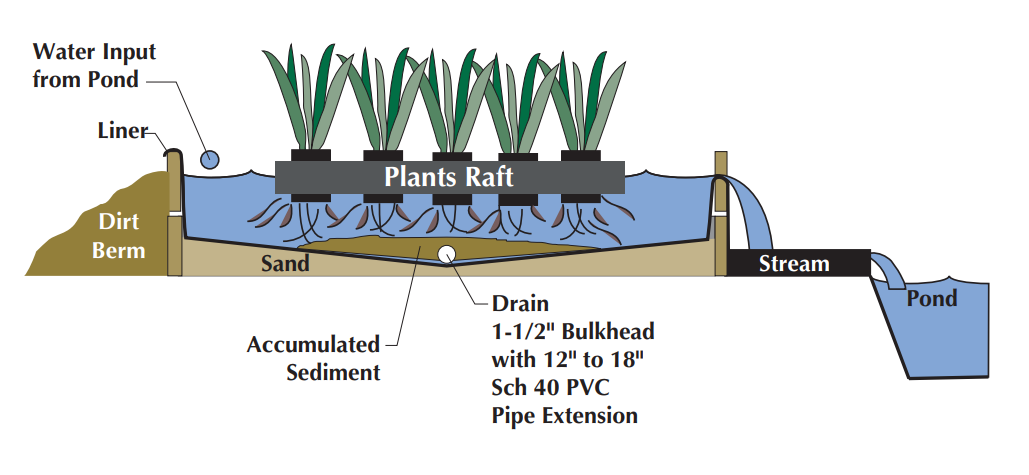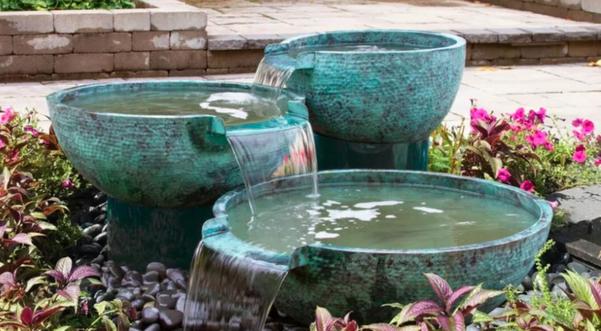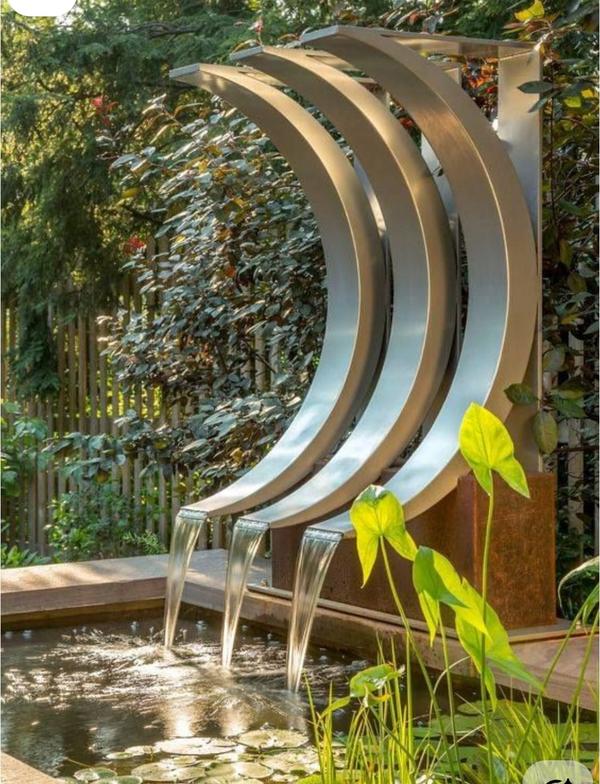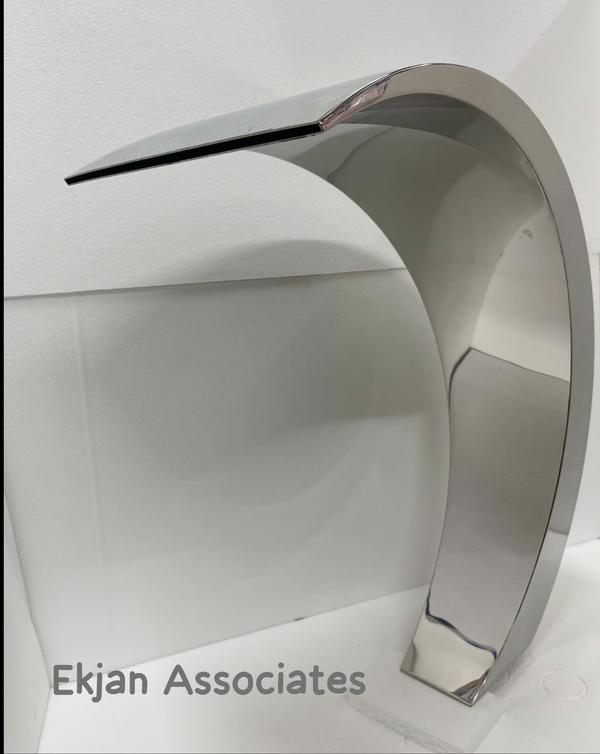
Plants Filtration Above All Others
Using plants in your pond filtration system has the following
advantages:
1. Aquatic plants consume toxic compounds such as ammonium, nitrite and nitrates. This protects your fish.
2. Aquatic plants remove toxic heavy metals and other pollutants from the water. This protects your fish.
3. Aquatic plants provide surface areas for biofilms and all types of beneficial bacteria. This improves water quality.
4. Aquatic plants help control algae. Not only do they consume
nutrients but they emit allelopathic chemicals that inhibit algae.
5. Aquatic plants oxygenate the water. They provide more oxygen than they consume.
6. Aquatic plants remove CO2 from the water. Excess CO2 can
cause fish distress.
Rationale: Plants perform the total filtration job, not just part of it. They contribute to all aspects of water quality.
How To Build a Natural Plants Filter
Plant filters should be built above grade so that they can be easily drained and cleaned; and the recirculated water easily returned to pond via stream or waterfall.
They can be any shape (rectangular, round, etc.) and anywhere from 10" to 18" deep. The surface area should be 10% or more of the area of the pond being filtered.
Pressure treated lumber, block or railroad ties can be used to frame the filter. Rubber or PVC liner are excellent liner material for the filter. Bulkhead drains and a flat bottom shaped to form a low point at the drain, as shown below, are recommended so that sediment can be flushed from the system
The completed filter can be faced with stone or concealed by dirt berm and plantings. Fill with water, test and add floating or
rafted plants. Pots should have many stab holes or slots so that roots of plants escape the pot and form a root mass for removing nutrients from pond water. Clean filter at the end and mid-season for best results.
Keywords
end
Pots
part
grade
roots
slots
stone
types
algae
block
shape
oxygen
stream
Others
lumber
Rubber
nitrite
aspects
control
Pressure
nitrates
biofilms
sediment
ammonium
waterfall
Rationale
root mass
dirt berm
low point
plantings
nutrients
PVC liner
mid-season
pond water
advantages
Excess CO2
flat bottom
Clean filter
best results
surface areas
railroad ties
Plant filters
rafted plants
water quality
fish distress
Aquatic plants
toxic compounds
Bulkhead drains
many stab holes
other pollutants
Plants Filtration
recirculated water
toxic heavy metals
beneficial bacteria
total filtration job
Natural Plants Filter
pond filtration system
allelopathic chemicals
excellent liner material




